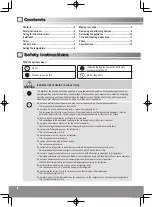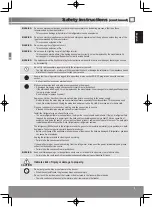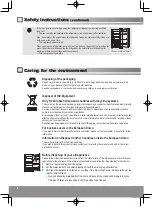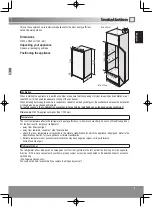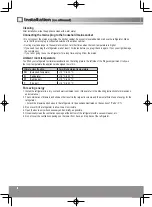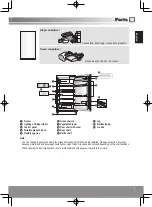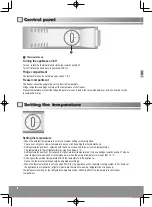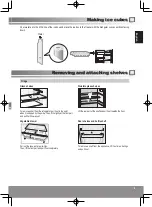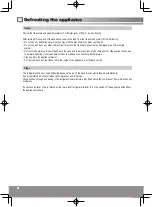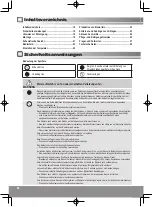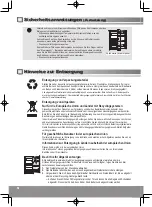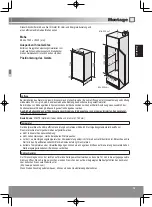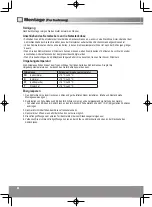
666
Cleaning
After installation, wipe the appliance clean with warm water.
Connecting the mains plug to the household mains socket
• Do not connect the mains plug inside the kitchen cabinet if a socket is located behind or above the refrigerator. Make
sure that the mains plug is connected outside of the kitchen cabinet.
• Cooling may take longer in the summer months or at other times when the room temperature is higher.
• If you need to unplug the refrigerator, wait at least 10 minutes before you plug it back in again. If not, you might damage
the compressor.
• If you’re not going to use the refrigerator for a long time, unplug it from the mains.
Ambient room temperature
You’ll fi nd your refrigerator’s climate classifi cation on the rating plate in the left side of the fridge compartment. It shows
the room temperature the appliance is designed to work in.
Climate classifi cation
Permitted ambient temperature
SN (Extended Temperate)
+10 °C to 32 °C
N
(Temperate)
+16 °C to 32 °C
ST (Subtropical)
+16 °C to 38 °C
T
(Tropical)
+16 °C to 43 °C
For saving energy
1. Install the refrigerator in a dry, cool and well-ventilated room. (Please refer to the Mounting Instructions for dimensions
and clearance.)
2. The combination of drawers and shelves that result in the largest in volume and the most effi cient use of energy for the
refrigerator.
• Attach the drawers and shelves in the refrigerator to the positions illustrated on the section of “Parts” (P.7).
3. Do not over fi ll the refrigerator to allow the air to circulate.
4. Open the doors only when necessary and as briefl y as possible.
5. Occasionally clean the ventilation openings at the bottom of the refrigerator with a vacuum cleaner, etc.
6. Do not cover the ventilation openings on the lower front, back, and top back of the refrigerator.
Installation
(continued)


